Design is a competitive industry. If you want to succeed, you’ll need to learn how to stand out as a graphic designer. It’s not just your portfolio that needs to wow potential clients. Your overall brand should also be associated with positive characteristics.
The goal is this: when potential clients see your name, they will see a talented graphic designer who works hard, follows creative briefs to the letter, and generates results on time and within budget.
So how exactly can you get ahead of the pack? In this article, let’s look at what you should do to make your work and brand stand out.
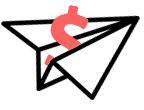
Get Weekly Freelance Gigs via Email
Enter your freelancing address and we'll send you a FREE curated list of freelance jobs in your top category every week.
Ready? Let’s get started!
12 Ways to Stand Out as a Graphic Designer
It can be challenging to make a name in graphic design. There are many talented designers out there and the competition is fierce. The key is to do things a bit differently.
Here’s how to stand out as a graphic designer. In this section, we’ll look at how you can produce remarkable work that will turn heads and how you can create a brand that will beat the competition.
How to Make Your Work Stand Out
Sticking to a creative brief is essential. But if you want to make your work stand out, you need to pay attention to the other visual elements not mentioned in the brief too. It also helps to learn from other graphic designers.
Check out these seven ways to make your work a cut above the rest so you can get graphic design clients:
1. Select a Color Scheme
Before you start any project, no matter if it’s a marketing campaign or a complicated tech startup that requires a deep understanding of what UI stands for, you have to choose your color scheme and follow it. That will help ensure all your designs for the project are cohesive.
It will help you save some time, too. Imagine if you decided on a color scheme halfway through a project. You’d have to go back to any previous designs that didn’t meet the color scheme.
When choosing a color scheme, don’t depend too much on traditional colors. Experiment and create a richer variety of colors instead. Instead of red, try crimson or mahogany. Opt for sapphire or cobalt instead of plain blue.

According to Shutterstock, if you’re not sure about what color scheme to choose, try analogous color schemes. Analogous colors are those that border each other in the color wheel.
An analogous color scheme never disappoints. Colors that fall under this category are known to be pleasing to the eyes. You can find them in nature – sunset, trees, oceans, and so on.
The bottom line is that your color scheme is tremendously important. Stick to the creative brief but be bold enough to experiment and find the right colors too. Remember, you want visually appealing and edgy designs that trump the competition’s. That’s how to stand out as a graphic designer in all the right ways.
2. Use Fonts that Add to Your Design
Don’t just use one font in your designs. That’s likely to look boring. To add a bit of variety, choose two fonts that complement each other.
But to pick your fonts correctly, you need to determine their purpose first. Will they give a fun message? In that case, display fonts or script fonts are your best bet. If you want something formal and sophisticated for printed materials, then Serif fonts such as Times New Roman are great.
Once you’ve decided the purpose of your fonts, test out those candidates that fit your criteria. See how they look on paper. Consider the pros and cons of each option. You can then narrow down your list until you have your final choices.
According to Inkbot Design, Helvetica is one of the most widely used fonts by graphic designers because it looks neutral.
That means it will look good when used on any type of content.
Here are a few other popular fonts you might want to consider:
- Futura PT
- Untitled Sans
- Plantin
- Avenir Next pro
- Ambit
- FF Meta
- TT Norms Pro
- Visuelt
- Sentinel
- Sweet Sans
The right fonts will give your designs the character they need. You need to make sure you pick them correctly.
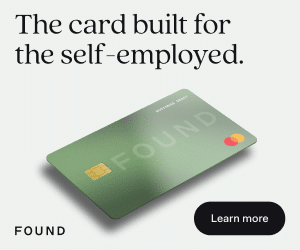
3. Always Sketch Before Designing
Graphic design is a lot like writing. If you want to create excellent output, you need to develop rough drafts first. In other words, sketching designs is critical.
But before you sketch, you need to have a clear understanding of what exactly you’re designing. Is it a print ad? A campaign poster? Go back to the creative brief. See what the client wants so you can start to envision your designs. Do your research first, then start your sketch.
Sketching allows you to brainstorm all the ideas you have to find the strongest. You don’t have to pick one just yet. Just get all your thoughts down and explore them. Sketches are supposed to be rough and done quickly. The more you have, the more ideas you can play around with.
4. Experiment with Layouts and Typography
When sketching, don’t just focus on the visual elements of your design. Explore layouts and typography, too.
They don’t have to be too detailed in your sketches. Just give yourself a general idea of the placement of your elements. Explore ways to arrange the type to maximize visual appeal and readability.
According to the Graphic Design Institute, some popular page layout for graphic designers include:
- Mondrian layout: This refers to the square, landscape, or portrait layout. It’s ideal when your design needs a conceptual composition about a topic or a story through text and images.
- Circus layout: Irregular positioning of elements. It’s best for expressing feelings of busyness or chaos.
- Multi Panel layout: The paper is divided into sections in the same shape as a rectangle, square and cube. It’s often used for education, sports, and youth-related designs.
- Silhouette layout: A shadow highlights the elements of the design. You can focus viewers’ attention on specific elements quickly with this layout.
- Big-type layout: The emphasis here is on big font sizes and font styles. This layout is often used in printed materials such as magazines.
- Alphabet-inspired layout: The focus is on the arrangement of letters and numbers in a specific sequence. This is great for web ads and posters that have less text.
- Copy heavy layout: Text dominates the layout here. It is best for designs that have a lot of copy such as newspapers, among others.
- Frame layout: The story is framed in the design. This is great for certificates and ads that need a balanced feel.
- Rebus layout: The positioning of the elements here is telling a story. This is best used to add richness and an element of surprise to the viewers.
- Picture window layout: The layout is composed of a big picture at the top. Then there’s a headline and copy below it. The layout connotes busyness and modernity.
Your choice of layout, again, depends on your design purpose. But whatever you choose, it helps to use a grid on your designs to guide your layout.
Now let’s move on to typography.
It’s not enough that you choose fonts that complement your designs. You have to find a way to arrange those fonts to make the copy easily readable and make the right bits stand out. That means the line lengths, line spacing, and letter spacing are just as important.
All of these are a matter of preference. Typography is an art and a technique. That means your choices depend on how you see things from a creative standpoint. Just remember not to sacrifice readability for creativity.
5. Embrace Minimalist Designs and Negative Spaces
No one likes clutter. Using fewer elements can often make your work more pleasing to the eye.
That’s why you should learn to love minimalism and negative spaces. According to Medium, with fewer design elements and more negative spaces, you “balance out and accentuate other hierarchically aligned design elements.” So, in the end, your work becomes more straightforward and clear.

When you follow the less is more philosophy, you should know how to prioritize your design elements. The rule of thumb is this: if an element negatively impacts your work’s usability and readability, remove it.
How about negative spaces? How do you deal with them? Although negative spaces are called white spaces, they don’t necessarily have to be white.
Negative spaces give your elements that breathing room on the page or the screen. They can be whatever color you want (such as the blue negative space in the example above). Just make sure the color complements your overall design.
If used wisely, negative spaces can support your page’s scannability, reduces the viewers’ distraction, and sets their focus on your design elements. They add elegance to your overall design, too.
6. See What Other Designers Are Doing
If you want to know how to stand out as a graphic designer, you need to know what your competitors are doing. Creativity is personal and unique, but that doesn’t mean the work of others cannot inspire you.
Check out your favorite designers’ websites, finished projects, and social media channels. You can even network with them by sending them personalized communication. Tell your fellow graphic designers about your new projects and explain the challenges you’re facing.
It’s normal for creative people to get help from fellow designers and be inspired by others’ work. That’s not to say you should imitate their work, though. It goes without saying that plagiarism is a big no-no.
7. Practice and Continue Learning
If you want to know how to stand out as a graphic designer, you need to know as many design techniques as possible. The more design programs you know how to use, the better.
That’s where tutorials can help you. With tutorials, you can expand your design knowledge. You can enhance your design techniques and learn and relearn design programs. In short, you can enhance your skills as a graphic designer.
The good news is, you can easily find these tutorials online. Googling “graphic design tutorials” will yield a list on your screen. Just choose the ones you’re interested in.
Want to know how to stand out as a graphic designer? View graphic design as a never-ending process of learning and you’ll do just fine. Remember, practice makes perfect.
Ways to Make Your Brand Stand Out
Now that you know how to make your portfolio stand out, let’s talk about how you can make your brand a cut above the rest. Branding yourself is just as important as creating a great portfolio.
You can be the most talented graphic designer in the world, but if you don’t know how to brand yourself you won’t get as many projects as you’d like.
Branding is about how others perceive you as a graphic designer. Here are a few ways you can make a good impression:
8. Decide What You Want to Be Known For
You want to manage other people’s perception of you as a graphic designer. The first step in managing that perception is understanding what you want to be known for.
According to 99designs, these are the questions you need to ask yourself to determine who you are as a professional:
- Why did you start designing?
- What kinds of design projects are you excited about?
- Who are your dream clients?
- What kind of vibe do you want people to get from your brand?
- How would you describe yourself in three words?
- How would your clients describe you in three words?
- What are your biggest strengths as a designer? What are your weaknesses?
Once you answer all those questions, you’ll know what your branding should be. The more specific your branding, the better. For example, it’s better to be a graphic designer specializing in logos for real estate companies, rather than a very general graphic designer.
9. Connect With Your Clients
You want to be seen not just as a talented graphic designer. You want to be perceived as a professional one, too. So when your clients have a question, you need to be available to answer them. If you missed their call, call them back as soon as possible. Even if you’re busy, you have to find a way to connect with them regularly.
You don’t even have to wait for them to ask you how a project is doing. Give clients updates every once in a while. Send an email letting them know how things are going. You want them to know you’re working hard to meet their deadlines and that everything is going smoothly.
They’ll appreciate your efforts. And when they talk to their peers, they’ll be full of praise for you.
10. Add On to Your Services
Don’t be like those graphic designers who charge clients for every move they make. Don’t get me wrong – I’m not saying you should shortchange yourself. I’m saying you should cut your clients some slack.
If they make a small request that doesn’t take much time or cost you any money, then accede to it wholeheartedly. You can even offer small add-on services free of charge to add value.
Remember, your business success is based on how good you are at cultivating relationships. And adding to your services is a great way to do just that.
11. Understand What the Client Wants
Want to know how to stand out as a graphic designer? Listen to your clients.
It sounds simple, but many graphic designers forget to do so. They end up losing customers and getting a bad reputation as a result.
The fact that they’ve hired you for your creativity doesn’t give you a license to ignore their opinions. If they have something to say, listen to them. Understand where they’re coming from. If you have a different opinion, professionally explain why. If you use this approach, clients are more likely to listen to you with an open mind.
12. Promote Your Work Well
Don’t be shy about promoting your work. You’re still running a business. To get projects, you need to let potential clients know you’re a talented designer who’s worth their time.
The good news is that you can promote your work easily nowadays. There are social media platforms such as Facebook and LinkedIn which are ideal for promoting your business.
Pinterest is also a great platform. You don’t need to be on every platform you can think of. Just try a few and pick the ones where you’re likely to find your ideal customers. For example, if you’re targeting the B2B niche, Facebook or LinkedIn prospecting would be a better choice to focus on than developing your Pinterest account.
It’s also a good idea to create your website for your work.
So the next time you apply for a project, you can just link to your site, so potential clients will see the quality of your work.
The bottom line is that you need to take the time to promote your work. Marketing your work is critical to your brand’s success.
How NOT to Stand Out from the Crowd
Now that you know how to stand out as a graphic designer let’s discuss how not stand out from the crowd?
Here are a few things you should avoid so you can remain a cut above the rest:
- Missing deadlines: When you took on a project, you should have already assessed whether or not you can meet the deadline. If you really can’t make the deadline due to unforeseen circumstances, inform your client as soon as possible.
- Not following the brief: If you submit a design that misses the entire point of the creative brief, you’ll never work for that client again.
- Ghosting: Cutting off communication with your clients is the height of unprofessionalism. You knew what you were getting into when you accepted the project. Don’t ignore your clients’ calls for project updates, especially if you can no longer meet the deadline.
- Using stock images: Always use your own work to promote your brand.
- Not proofreading: If you want to stand out as a graphic designer, you need to turn in excellent work. Spelling mistakes and grammatical errors will undermine your credibility.
- Designing for the wrong medium: Again, follow the brief. It wouldn’t matter if you turned in your best work if it’s for the wrong medium your client won’t be able to use it.
The rule of thumb is this: If it will make your client unhappy in any way, don’t do it.
Wrapping up
If you want to succeed as a graphic designer, you need to stand out. You might be thinking, “but there are many creative and talented individuals out there! How do I stand out from the crowd?”
The key is not just to hone your talent as a graphic designer and create a great portfolio, but to understand how to brand yourself, too. This means implementing a comprehensive branding and marketing strategy.
In this article, I gave you 12 tips on how to stand out as a graphic designer using both your portfolio and your personal brand. If you put the hard work in, you’ll soon find yourself standing out in all the right ways. And then those projects will keep rolling in!
Keep the conversation going...
Over 10,000 of us are having daily conversations over in our free Facebook group and we'd love to see you there. Join us!

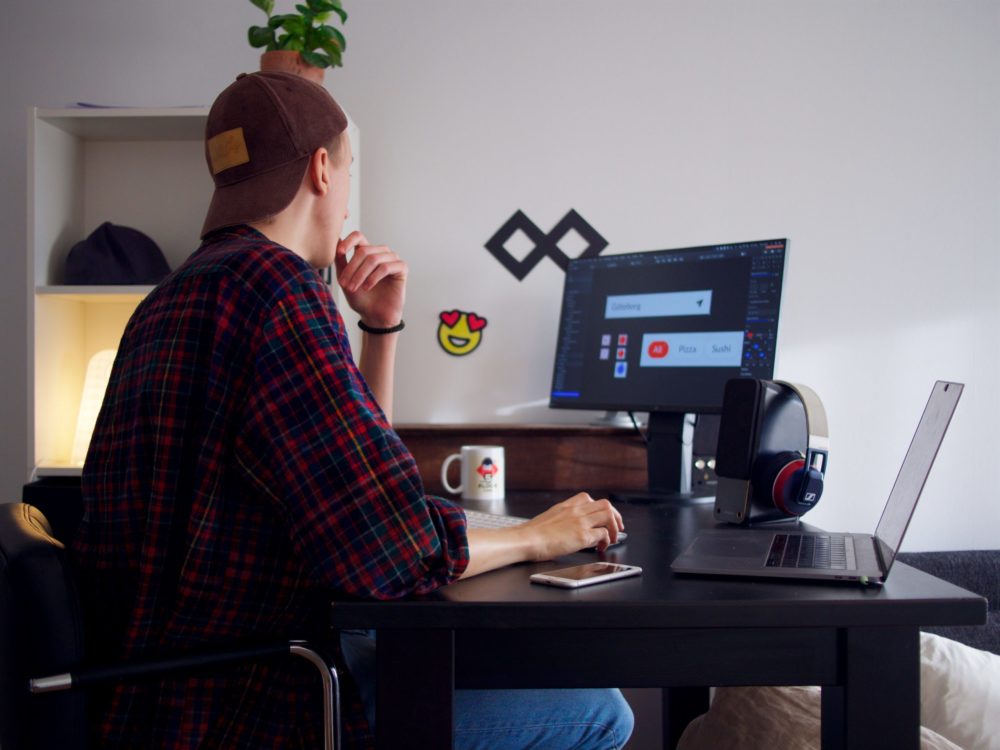
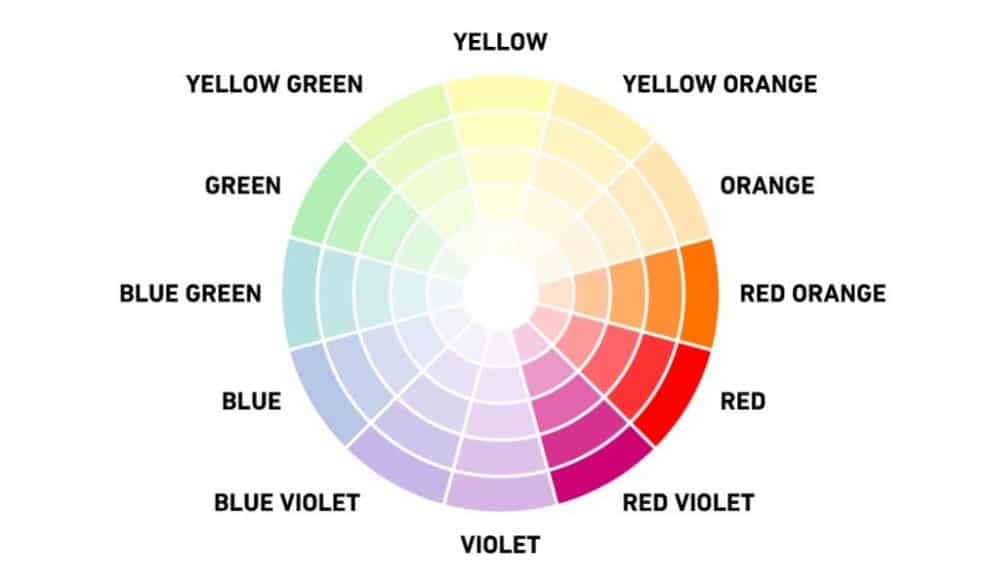
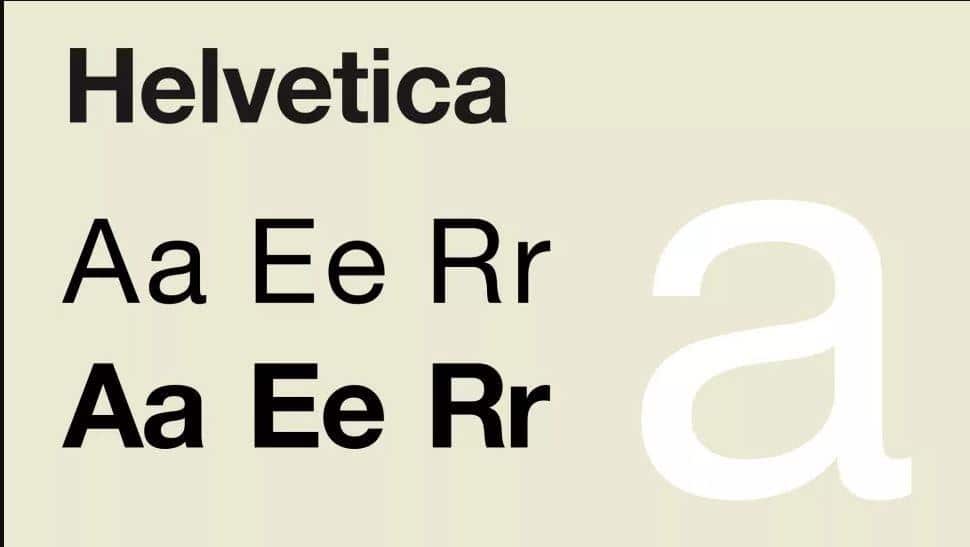
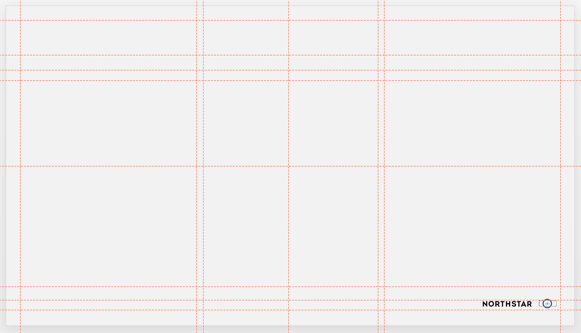
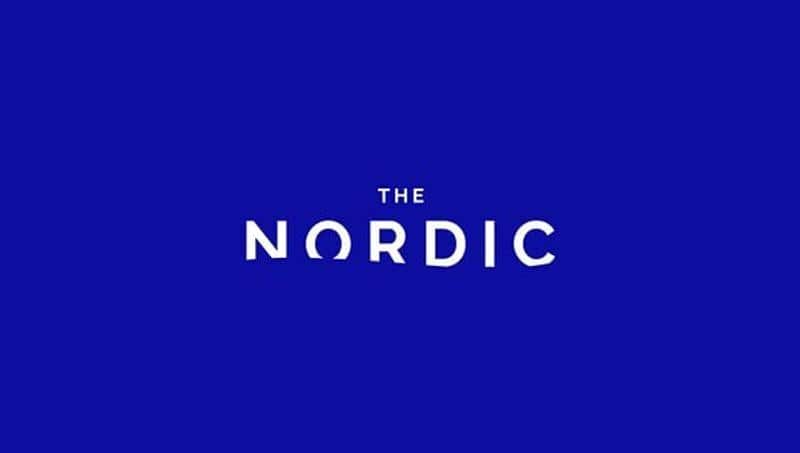


Its treat to read this article. I am glad that someone is thinking infect working just like i am doing. My success is totally depends on my communication and connected with the client even in holiday seasons. I started as a freelancer from my home and within 3 years i established myself as a IT professional and launch my own IT company. Its all about communication and giving extra to the person who is dealing with you for his/her business. If you value their work, ideas etc and work exactly as per requirements then there is no way to loose client.
I also wrote similar type of article few months and ago and would like to share here with you guys.
http://www.logospecialist.net/blog/how-to-make-a-career-out-of-graphic-designing/
Thanks
Imran
Including a few business cards with anything you mail out to clients has proved useful for myself here and there. I find that my clients either hand them out to people who may have an interest in my services or they leave them lying around where someone could easily spot them.
Sorry I was referring to this article as well as this one: http://www.graphicdesignblender.com/ways-to-grow-your-design-business-in-less-than-an-hour
Thanks for these tips! I found them very helpful. I’ve bookmarked this page to remind myself of what I still need to do or update 🙂
Thanks for the article. It can be really hard to find a good designer to simply do the job and do it well! I’ll bookmark this and pass it onto my friends too 🙂
Keep writing, cheers!
Good post, should be general knowledge for alot of designers though. it all depends on how you “package” it 😉
Brilliant points, thanks so much. Especially for listing the simple things, those are always what we forget!
Great tips, i agree all,
but, sometimes i trap into small budget customer. How did i can tell my customer that value is more important than the money.
Great post Nicole. I agree with all your points.
Great article. I found myself agreeing with each point. It’s nice to be able to learn some simple techniques that make a big differece, especially when you’re new to design.
I also liked the image used in the beginning. Now I’ll always strive to be that apple standing in a line of oranges. 🙂
great advice! thanks alot for the post. Im redoing my whole site/identity right now so this is very helpful!
Wow, this is a sweet looking blog. Guess that’s what’s expected from a graphic design blog…. very nice.
Thats a great inspiration for me.
Great info…I like the “go the extra mile” part. Sometimes I need to be reminded of that…
I definitely agree with responding to clients in a timely manner. Sometimes when I get back to clients quickly, they act surprised, as if they thought it would take forever to hear from me. Little things like that can make a big difference!
Great article, it’s simple stuff, but that’s so often what people forget. One thing we’ve found, is that being too unique, or too “high brow”(in some people’s eyes) can actively scare clients away.
We’re a creative agency, but quite often I’ll speak to people who didn’t want to approach us with their business card job, or their website brief, because they thought it would be “below” us. You find yourself going “Nooo!” quite a lot. Frustrating stuff.
Nice article, but not agree with free services.
@P4blo, It’s understandable not to agree with giving away a free service especially in times like these, but that is what makes it special.
Nonetheless, alternatively, you could reduce the price for the client.
excellent article. I’m a true believer of the quick reply. It lets the client know you’re sincerely interested in working and helping them. Plus, it creates a reputation of being efficient and precise.
But i’m not sure about offering free services. I use to try this with first time client but then they came to expect something else free on the side. it was a real let down for them when i told them i’d have to charge them 🙁
@Jordan G., That is a draw-back of offering a free service. I would only suggest giving away something free to on-going clients or clients that seem to know how designing works.
Thanks for the compliment nonetheless. I’m glad you enjoyed the article (:
Haha, victims of your own unique-ness. I never thought of that before, but hey, that means a lot of people have them.
We have a really unique business card that people always play with when I give it out and I know they keep. Only problem is we get loads of enquiries for business card re-prints!!! Victims of our own unique-ness. We never turn business down but we would prefer brochures!